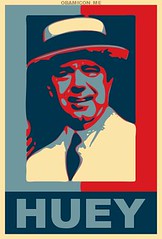I've been an
EIT/EI (term varies by state) for about three and a half years now. I'm almost ready to take the P.E. Exam. In legal terms, the main thing that separates a
Professional Engineer is the ability to stamp and certify drawings. It means the P.E. is taking full responsibility for the design.
In order to become a P.E. you need to graduate with a Bachelor's of Science* in Engineering from an ABET-accredited university. You'll generally have about 100 credit hours worth of math, science, and engineering out of 120-ish total for your diploma.
Then, you take the Fundamental of Engineering exam (
FE Exam). I took and passed the FE a few weeks before I graduated in Spring 2006. The FE is only given twice a year, so as long as your school certifies that you're going to graduate on time, you're allowed to take it the semester you graduate. Tulane, despite having many graduates in Biomedical Engineering who don't have a full load of thermodynamics, hasn't had a student fail the FE in over 30 years. That's partially because it's graded on a state-by-state curve (thank you, LSU students, for anchoring down the scores!).
Once you pass the FE Exam, you become a EIT/EI. Engineer In Training (EIT) is a more common term, but Louisiana uses Engineer Intern (EI).
You then gain experience while working under a licensed Professional Engineer for usually 4-5 years. I've been very fortunate in that I work for a firm that's got the best reputation in town for over 50 years and I've had the opportunity to work in several different industries (mining, oil & gas, commercial, etc.) under several different P.E.'s and gain some great experience.
I was originally planning on taking it as soon as possible, but I'm pretty much settled into taking it in October of 2010. I've recently learned, however, that Louisiana technically only requires 3 years, 9 months of experience, due to the exam being scheduled only twice per year (April/October) and once per year for less common exams (nuclear, industrial, etc.). I could, if I chose to, take it in April of 2010, about 6 months from now. Unfortunately, that April date is very close to another
busy day for me. I'd also have only 6 months to study for it (a full year studying about 10-20 hours a week to prepare is recommended).
I've asked around and from what I can tell, Mechanical Engineering and Civil/Structural are the two most difficult subjects. Mechanical Engineering is extremely broad; I like to describe it as 'everything that moves.' The three main subjects on the
Mechanical P.E. exam are Thermo/fluids, Machine design, and HVAC/Refrigeration. If the exam were just on fluids, I could probably take it in my sleep, but I've done virtually no HVAC work. It takes learning a huge amount of material to pass.
Anyway, that's what I'm considering now. I'm probably going to take it in October 2010, like I was planning. The only consideration I might have is I might want to study as much as I can and just take a stab at it in the spring. If I pass, I pass and if I fail, I know what to study. It's $255 to take the test, plus $100 to
LAPELS, so I'm not sure I want to take it just for kicks.
_______________________
* There are other ways to become a P.E., but I'll stick with the most common route. This is how 90+% of new P.E.'s go. See
NCEES for more.




















